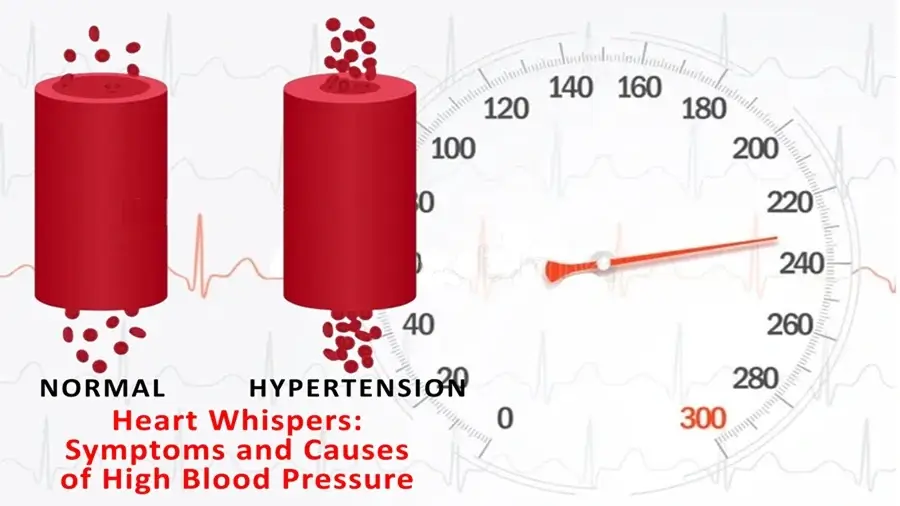
Introduction:
Living with asthma can be tough, especially when dealing with both asthma symptoms and changes in heart rate at the same time. Asthma is a condition that affects how you breathe. It can make your heart beat faster or slower because your body is working harder to get enough air. Understanding the link between asthma and heart rate fluctuations is important for staying healthy.
In this article, we’ll talk about some easy things you can do to manage both asthma and changes in your heart rate. Asthma is a common lung problem that makes it hard to breathe. It can cause things like coughing, wheezing, and tightness in the chest. Different things can trigger asthma attacks, like allergies, exercise, and stress. Keeping an eye on the symptoms of asthma and heart rate fluctuations is important. Because changes in your heart rate can make you feel uneasy.
Signs and Symptoms of Asthma
A lot of people all over the world have asthma, which can make it hard to breathe sometimes. When you have asthma, you might hear wheezing sounds when you breathe, feel like your chest is tight, or cough a lot. Sometimes, it might feel like you can’t catch your breath easily. These things can make it tough to do things you usually enjoy.
Did you know that asthma can also make your heart beat faster, especially when you’re having an asthma attack and your body is working hard to get enough air? It’s important to manage asthma well so you can feel better and stay healthy. If you notice any of these signs, it’s important to tell an adult or a doctor so they can help you feel better.
Learning how to manage asthma can help you breathe easier and have more fun. Paying attention to how you breathe, figuring out what makes your asthma worse, and getting help from a doctor when you need it are all important steps in taking care of asthma. Understanding asthma symptoms and how they can affect your heart rate can help you stay healthy and feel good.
Understanding Asthma Triggers
When someone has asthma, certain things can make their breathing worse or even cause an asthma attack. These things are called asthma triggers, and they can be different for everyone. Common triggers include things like pollen from plants, pet fur, dust, mold, smoke, and strong smells. People with asthma need to figure out what triggers their symptoms so they can try to stay away from them and breathe better.

Additionally, asthma can also make the heart beat faster, especially during an asthma attack when it’s hard to breathe. This happens because the body is working extra hard to get enough air into the lungs. When the heart beats faster, it’s trying to pump more oxygen-rich blood to the body to help out. But if the heart beats too fast for too long, it can cause problems, especially for someone with asthma.
To understand further, asthma is a health condition that makes it tough to breathe because the airways in the lungs get swollen and narrow. This can cause symptoms like wheezing, coughing, chest tightness, and feeling like it’s hard to get enough air. During an asthma attack, the body tries to compensate for the trouble breathing by making the heart beat faster. However, if the heart beats too fast for too long, it can cause problems, especially for someone with asthma.
The Link Between Asthma and Heart Rate Fluctuations
The connection between asthma and heart rate fluctuations is significant. Asthma can make it hard to breathe by narrowing the airways. It can cause the heart to beat faster during an asthma attack. This faster heart rate is the body’s way of trying to get more oxygen to important organs.
However, it can also make asthma symptoms worse. It’s crucial to manage asthma properly to keep the heart rate steady and healthy. By taking asthma medicine, making healthy lifestyle choices, and learning to manage stress, people can reduce the risk of their heart rate increasing. It will also improve both their breathing and heart health.
Additionally, keeping track of changes in heart rate during asthma attacks can help people and their doctors understand how severe the attack is. If their treatment plan is working effectively. Monitoring heart rate is essential for managing asthma and preventing complications.
Tips for Managing Asthma and Heart Rate Fluctuations:
Managing asthma and heart rate fluctuations can be challenging, but there are steps you can take to keep yourself healthy. Here are some tips to help you breathe easier:

Follow an Asthma Action Plan:
Work with your doctor to create a plan that tells you what to do if you have asthma symptoms. This plan can help you know when to use your medicines, what to do if your symptoms get worse, and when to call your doctor.
Keep Your Home Clean:
Dust mites, pet fur, and other things in your home can make asthma worse. Use special covers on your bed, clean your air filters, and try to keep your home clean and free from things that make asthma worse.
Use Inhalers Correctly:
If your doctor gives you an inhaler, make sure you know how to use it the right way. Using your inhaler the right way can help you breathe better and prevent heart rate changes.
Identify and Avoid Triggers:
Pay attention to the things that make your asthma worse, like pollen, dust, or smoke. Try to stay away from these things as much as you can.
Take Your Medicines:
If your doctor gives you medicine for asthma, take it exactly as they tell you to. Even if you feel okay, taking your medicine every day can help you stay healthy and prevent heart rate changes.
Relax and Reduce Stress:
Stress can make asthma worse. So, try to relax and stay calm. You can try things like deep breathing or yoga to help you relax and breathe easier.
Stay Active:
Exercise is good for your heart and lungs, but make sure to choose activities that won’t make your asthma worse. Walking, swimming, or biking are good choices.
Monitor Your Heart Rate:
Keep an eye on your heart rate, especially when you’re exercising. Asthma and high heart rate have an important link. If your heart rate gets too high, it could make your asthma worse. Stop exercising if you feel dizzy or your chest hurts.
Practice Breathing Exercises:
Breathing exercises can help you breathe easier and reduce stress. Try taking slow, deep breaths to help calm your body and make it easier to breathe.
Stay Healthy:
Eating healthy foods, drinking plenty of water, and getting enough sleep can help you manage your asthma and keep your heart healthy.
Keep Track of Your Symptoms:
Write down when you have asthma symptoms and how you feel. This can help you and your doctor know if your treatment is working.
Know When to Get Help:
If your asthma symptoms are severe or you’re having trouble breathing, call your doctor right away. Don’t wait, because getting help quickly can keep you safe and healthy.
Importance of Regular Medication
Asthma is a long-lasting condition that needs careful attention to keep it in check. Taking medicine regularly is super important for controlling asthma and avoiding bad episodes. This medicine helps calm down the airways in the lungs, making it easier to breathe and stopping asthma attacks before they happen.

Sometimes, if asthma isn’t managed well, it can make the heart beat too fast, which isn’t good. That’s because when asthma acts up, the body gets stressed, and the heart has to work harder to pump enough oxygen to the body. But taking medicine like your doctor can help keep your asthma under control and stop your heart from beating too fast. So, always remember to take your medicine like your doctor tells you to. It helps keep your asthma and your heart in good shape, so you can feel your best and do all the things you love.
Breathing Exercises for Asthma Management
Breathing exercises are beneficial for managing asthma and heart rate fluctuations. Techniques such as deep breathing, pursed-lip breathing, and diaphragmatic breathing can improve lung function, reduce stress, and promote relaxation. These exercises help regulate breathing patterns, prevent rapid breathing, and enhance respiratory muscle strength.
By incorporating breathing exercises into their daily routine, individuals with asthma can better control their symptoms, reduce the frequency of exacerbations, and improve their overall quality of life. Additionally, practicing these techniques regularly can empower individuals to take control of their respiratory health and enhance their well-being.
Managing Stress to Reduce Asthma Symptoms
Managing stress is really important for feeling better when you have asthma and keeping your heart rate steady. Stress can make asthma worse by making it harder to breathe. Asthma increases heart rate and the chance of having an asthma attack. Additionally, it can also make your heart beat faster, which can be uncomfortable. To feel calmer and reduce stress, you can try activities like deep breathing, meditation, and yoga. These things help your body relax and can make asthma symptoms less severe.
By managing stress well, people with asthma can control their symptoms better and keep their heart rate steady. It is important for staying healthy. Doing things that help you relax, like breathing exercises and gentle exercises like walking or swimming, can make a big difference in how you feel.
Cardiovascular Exercise Recommended to Manage Asthma and Heart Rate Fluctuations:
Getting regular exercise that gets your heart pumping is good for managing asthma and keeping your heart rate steady. Even though it might sound tough if you have asthma. However, doing regular physical activities can strengthen your lungs and heart. It will help you breathe easier and keep your heart beating steadily. Simple activities like walking, swimming, or riding a bike can make your heart and lungs stronger. So, it’s easier for you to breathe and less likely for your heart to beat irregularly.
However, it’s important to start slowly and gradually do more as you get stronger to avoid setting off asthma symptoms. By doing these exercises regularly and keeping an eye on your heart rate while you exercise, you can take charge of your asthma and make your breathing and heart healthier.
Tracking Your Symptoms and Progress
Keeping track of how you feel and any changes in your symptoms is really important when you’re dealing with asthma and heart rate fluctuations. You can do this by writing down or using an app to record things. Things to note can include having trouble breathing, feeling tightness in your chest, or noticing changes in your heart rate. It’s also helpful to jot down what might be causing these symptoms. For example, if you’ve been exercising a lot, around things you might be allergic to, or feeling stressed out.
Keeping a record like this can help you and your doctor see if there are any patterns and make changes to your treatment plan if needed. Plus, checking your heart rate during exercise can help you know if you’re pushing yourself too hard. By staying on top of your symptoms and progress, you can take control of your asthma and keep your heart rate steady. It is important for staying healthy and feeling good overall.
Seeking Support from Healthcare Professionals
When dealing with asthma and heart rate fluctuations, seeking support from healthcare professionals is crucial. Your doctor and nurses can provide valuable guidance and expertise to help you manage your condition effectively. They’ll work closely with you to develop a personalized treatment plan tailored to your specific needs. This plan may include medication, lifestyle changes, and monitoring strategies.
Additionally, your healthcare team can educate you about asthma triggers, symptoms to watch out for, and proper medication usage. If you notice any concerning symptoms or changes in your condition, don’t hesitate to reach out to your healthcare provider for advice and support. Regular check-ups with your doctor can also help track your progress and make adjustments to your treatment plan as needed.
By collaborating with healthcare professionals, you can gain the knowledge and tools necessary to keep your asthma and heart rate fluctuations under control. It will lead to better health outcomes and improved quality of life.
Conclusion:
In conclusion, it’s important to take care of both breathing and heart health when dealing with asthma. By understanding how asthma and heart rate fluctuations are connected, we can take steps to control symptoms and stay healthy. This means remembering to take our medicine, making healthy lifestyle choices, managing stress, and getting help from our doctors when we need it. By working together with our doctors and staying informed, we can feel better and live happier lives. Remember, taking care of ourselves is the key to feeling good and staying active every day!
Related Articles:
Navigating Danger: How to Respond to Dangerous Heart Rate Spike

